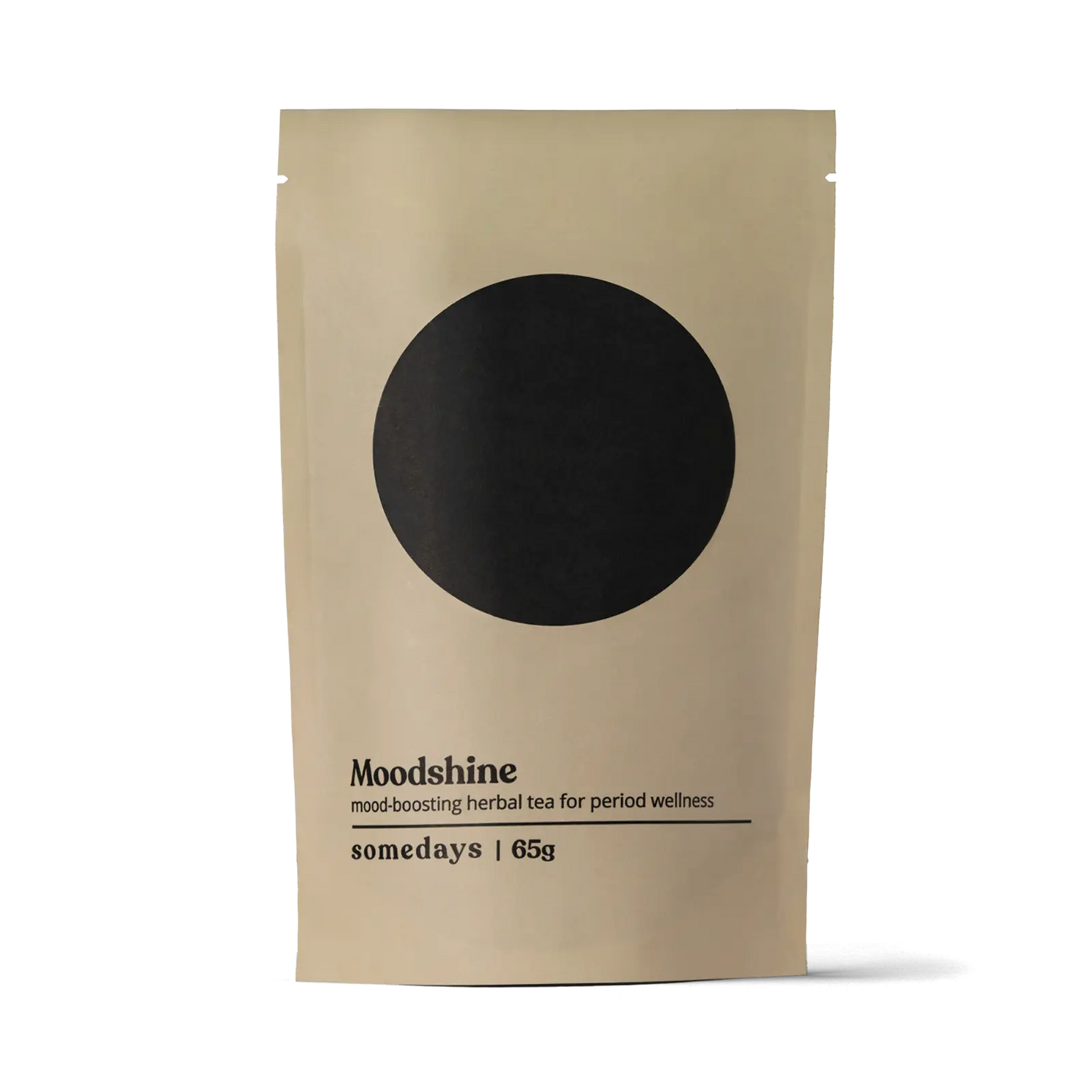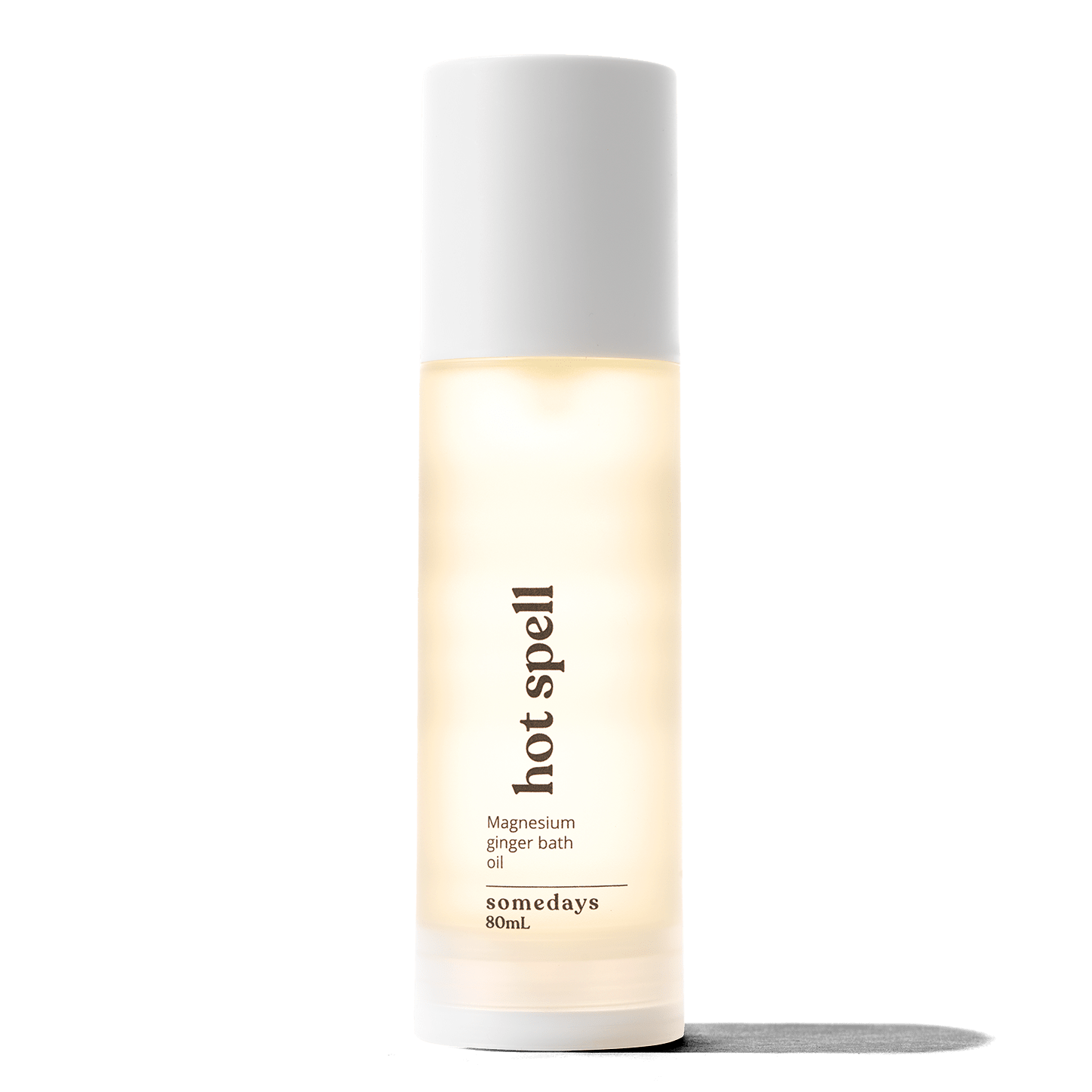How to Combat Menstrual Fatigue: Top Energy-Boosting Tips

Menstrual fatigue is a common symptom for people with periods. Fatigue tends to occur at the tail end of your luteal phase andinto the beginning of your period. This fatigue is familiar to many; a deep, heavy eyelid tiredness that hits regardless of the length of your to-do list. Like most premenstrual and menstrual symptoms the intensity of this fatigue varies; mild sleepiness for some and overwhelming exhaustion for others. Ideally, we would stay in bed a few extra hours, or move a bit slower during those days, however, modern life doesn’t always allow for that kind of pause. Understanding what is happening in your body to cause this fatigue can allow you to feel in control for when the next wave hits, know when things aren’t normal and prepare some strategies to boost your mood and energy.
What causes Menstrual Fatigue?
On the hormonal level, menstrual fatigue is tied to the drop of estrogen and progesterone at the tail end of your luteal phase, which is the second half of your menstrual cycle. This drop in estrogen is directly associated with lower levels of serotonin, a neurotransmitter that plays a key role in regulating mood and energy levels. As serotonin declines, many people experience low mood, reduced motivation, and increased fatigue.
Other thing, outside your hormone levels, can worsen or cause fatigue during your menstrual cycle as well. If you are someone with a heavy flow, the beginning of your period can result in fatigue due to low iron from heavy bleeding. Other menstrual symptoms such as disturbed sleep due to body cramping or a rise in body temperature can also result in fatigue.
How Can You Combat Menstrual Fatigue?
There is no way to completely get rid of menstrual fatigue. As inconvenient as it may be, remember that hormonally, this is your body's way of reminding you to slow down and prepare for menstruation. It is important to listen to your body and respond accordingly, bylowering expectations of your productivity and taking breaks when you can in your daily tasks. However, life doesn’t discriminate, with exterior pressures and responsibilities that require your energy there are things you can do in your daily routine and lifestyle to feel slightly more energized at this time.
Stay Hydrated
Dehydration is very common during menstruation. What many of us don’t realize is that during our period, we are losing a lot of fluid. Dehydration worsens feelings of fatigue, so make a point of drinking plenty of water at all times in your cycle, especially in your late luteal and early menstrual phase.
Eat Balancing Foods and Meals
Keeping stable blood sugar levels during periods of fatigue can help prevent any additional energy slumps. Even when your body says Chocalate or sugar it is best to focus on iron-rich foods like spinach, red meat, and legumes., can help with fatigue if you experience heavy bleeding.Foods that spike your blood sugar levels, such as refined sugar. Focus on consuming diverse and complex foods and meals that are high in protein, fiber, and healthy fats. Focusing on
Move Your Body
This tip often feels annoying, as the last thing we may feel like doing when in a state of exhaustion and fatigue. Just let me rest goddammit! Of course, you know your body best, and this is by no means a suggestion to force your body into exercise that is stressful and could worsen your fatigue. However, engaging in moderate aerobic exercise, such as walking, yoga, and pilates has been known to improve circulation and release endorphins, dopamine and serotonin, which naturally boost energy and mood.
Prioritize A Good Sleep
Slightly obvious, but yes, when you are experiencing fatigue, getting enough sleep and rest is going to make things much better. Pay attention to your nighttime routine: are you going to be around the same time each night? How long before bed are you using screens? How long before bed was your last meal? Try and keep your pre-sleep routine consistent, prioritizing little stimulation an hour before bed (no screens or late-night meals). Since your body temperature does increase before and during menstruation, try keeping your bedroom cool with a fan or a cracked window. Incorporating magnesium into your before-bed routine can improve sleep quality, such as taking magnesium before bed with the Somedays Magnesium Ginger Bath Oil.
Relaxation Techniques
We all know stress is going to make most things worse, but leading up to and during menstruation, stress management is crucial as high levels of stress can elevate cortisol, which can negatively impact estrogen levels. Deep breaths can work wonders throughout the day to keep your stress levels low, whether it’s five deep breaths after a challenging work call or a five minute meditation to start/end your day. You know your capacity; every effort counts.
Herbal Remedies
Herbal remedies have been known to have calming, and mood and energy-boosting effects in many realms of alternative medicine. Here are some of our favorites.
Hibiscus, an active ingredient in the Somedays Moodshine Tea, is a source of iron, which can help improve energy, especially when you are starting to menstruate.
Ginkgo biloba, has often been noted for its cerebral-enhancing effects and is even prescribed as a herb in Germany and other European countries' medical systems. These cerebral enhancing effects are been known to improve cognitive function, elevate your mood, and increase energy.
Nettle, which is found in Somedays Raspberry Relief Tea, is a source of magnesium. Magnesium is known to activate enzymes in the body, which contribute to energy production.
Maca, a plant native to Peru, is known for its energy-enhancing powers. This is a personal favorite that makes its way into my smoothies on the daily.
Ginseng contains compounds such as ginsenosides, eleutherosides, and ciwujianosides, which have been known to provide energy boosting effects in the body, specifically in athletes.
Consider Supplements
For those experiencing low energy due to heavy bleeding or anemia, iron supplements may be helpful. Additionally, calcium supplements or NSAIDs like ibuprofen can help alleviate the pain and inflammation associated with PMS, leading to better energy levels. Always consult with a healthcare professional before starting any new supplement.
When Should I Consult a Doctor Regarding Menstrual Fatigue?
Menstrual fatigue is a common experience for people who menstruate, but persistent fatigue that occurs throughout your cycle can also be a common symptom of other underlying conditions. Be sure to listen to your body and considering consulting a healthcare professional if:
- Your fatigue does not respond to lifestyle changes or at-home treatments.
- Your tiredness consistently interferes with your ability to carry out daily activities or work.
- You experience additional severe symptoms such as shortness of breath, heart palpitations, or pale skin, which could be signs of anemia.
- Your fatigue persists throughout the month, not just during your period, as this may indicate an underlying issue such as an underactive thyroid or other health condition.
As always, we want you to feel in control when it comes to navigating the many things that having a period can bring. You are the one who knows your body and it’s capacities best. We hope this breakdown of menstrual fatigue has allowed you to feel more empowered in knowing you have options and strategies to move through that somewhat inevitable slump.
Much love.
Previous Article All Articles Next Article
All Articles


